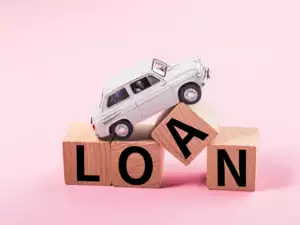In today’s economic landscape, financial success often requires strategic planning and savvy decision-making. One area where individuals can significantly impact their financial well-being is through car refinancing. By exploring various car refinancing strategies, individuals can gear up for a brighter financial future.
Introduction To Car Refinancing
Car refinancing involves replacing an existing car loan with a new loan, typically with more favorable terms. Refinancing is typically undertaken to lower the interest rate, decrease monthly payments, or modify the loan term in order to more suitably accommodate an individual’s financial circumstances. This process is similar to refinancing a mortgage but specifically applies to auto loans.
Evaluating Your Current Loan
Before diving into car refinancing, it’s essential to assess your current loan situation. Before proceeding, examine the remaining balance, interest rate, and monthly payment information of your current loan. Compare these details with current market rates and your financial goals to determine if refinancing is a viable option.
Securing A Lower Interest Rate
A substantial rationale behind the act of refinancing an auto loan is to secure a reduced interest rate. As interest rates fluctuate over time, there may be opportunities to car refinance at a lower rate than what was initially offered. Borrowers can potentially optimize their financial situation by secure a reduced interest rate, which can amount to thousands of dollars in interest savings throughout the loan’s duration.
Extending Or Shortening The Loan Term
Altering the tenure of the loan is an additional approach to contemplate during the refinancing process. While extending the loan term may reduce monthly payments, it may ultimately lead to increased interest expenses. Conversely, shortening the loan term can lead to higher monthly payments but may save money on interest and allow for faster loan payoff. When evaluating the merits and demerits of each alternative, determine which one is most congruent with your financial goals.
Improving Your Credit Score
The interest rate you obtain when refinancing an auto loan is substantially influenced by your credit score. Refinancing may qualify you for a reduced interest rate if your credit score has increased since you obtained the initial loan. Pay bills on time, reduce your debt, and dispute any inaccuracies on your credit report in order to raise your credit score prior to submitting a refinancing application.
Shopping Around For The Best Deal
When exploring car refinancing options, don’t settle for the first offer that comes your way. Investigate various lending options, such as online lenders, banks, and credit unions, in order to compare rates. In addition to the interest rate, extraneous considerations include fees, loan terms, and the reputation of customer service. By doing your homework and negotiating with lenders, you can secure the best possible deal on your refinanced loan.
Considering Cash-Out Refinancing
For those in need of extra cash, cash-out refinancing may be an option to explore. With this strategy, borrowers refinance their car loan for more than the current balance and receive the difference in cash. While this can provide immediate funds for expenses like home renovations or debt consolidation, it’s essential to weigh the long-term implications and ensure you can afford the higher loan amount and monthly payments.
Avoiding Negative Equity
Negative equity, which is alternatively referred to as “upside down” on a loan, manifests when the outstanding balance on a vehicle exceeds its current market value. Refinancing can potentially exacerbate this situation if the new loan amount exceeds the car’s value. In order to mitigate the risk of negative equity, one may contemplate refinancing with a larger down payment, a shortened loan term, or a vehicle that possesses a substantial resale value.
Conclusion
Car refinancing offers a valuable opportunity for individuals to improve their financial outlook by securing better loan terms and reducing overall costs. By exploring various refinancing strategies, such as securing a lower interest rate, adjusting the loan term, and shopping around for the best deal, individuals can gear up for financial success and drive towards a brighter future on the road of life.



